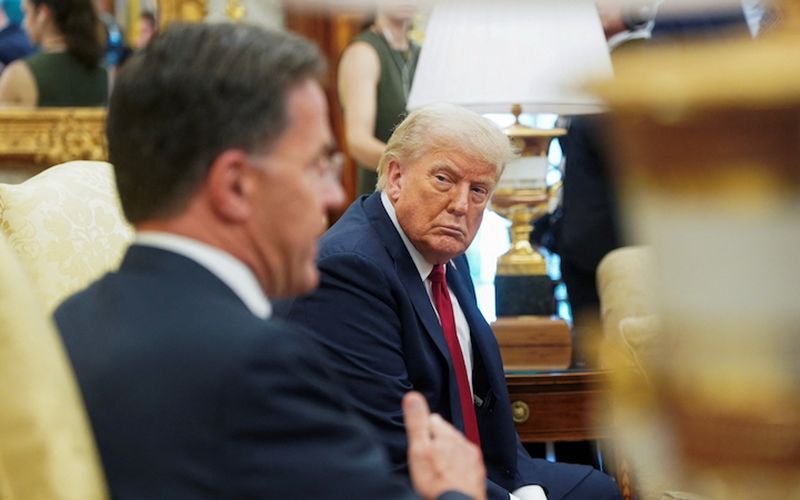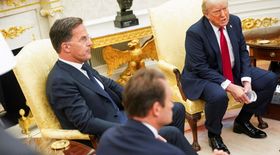World leaders are swapping strategies for gaining President Donald Trump's attention and conducting fruitful conversations, but they're also afraid of lavishing too much flattery on him.
Foreign officials have gamed out potential surprises and traps before meeting with the U.S. president, and eight diplomats and officials from six countries told The Atlantic how they've shared best practices among each other to arrive at just the right mixture of flattery and firmness needed to woo Trump while maintaining their dignity.
“There is a sense that you want to be on the right side of history," said one European diplomat. "You do want to be able to look at yourself in the mirror and reread your statements in the Oval Office a couple of years later and say, ‘I feel good about what I said.'”
Trump has been open about his desire to receive a Nobel Peace Prize, and Pakistani officials nominated him for one last month in hopes of currying favor with him.
But some diplomats cringed at the lengths NATO Secretary General Mark Rutte went to flatter the president by calling him "daddy," as in "daddy has to sometimes use strong language," when referring the conflict between Israel and Iran.
Rutte, who visited with Trump in the White House Monday, made the comment during a summit in the Netherlands last month.
“Who isn’t a bit embarrassed on his behalf?” one diplomat said.
Diplomats have noticed that Trump seems to respect people who stand up to him, but officials who've met with him agreed that must be accompanied with at least some flattery.
“It does seem that it’s a little more exaggerated in the second go-round,” said Marc Short, who was Mike Pence's chief of staff during Trump's first term. “Maybe it’s just the learning curve, but it seems like it’s copied more now.”
European leaders have also copied Gulf states, which roll out the red carpet and shower the president with gifts and accolades during his visits and cemented their partnerships with agreements to invest money in American companies.
“Trump is at home in the Gulf because he recognizes their style of family rule,” one diplomat said. “The Europeans gave up that method of governance about a century ago, but we know how to put on a show when we need to.”













